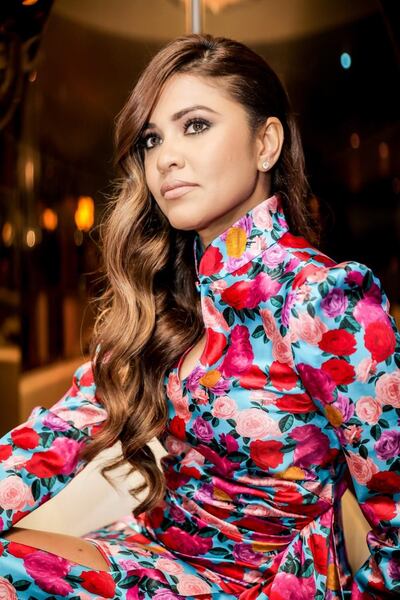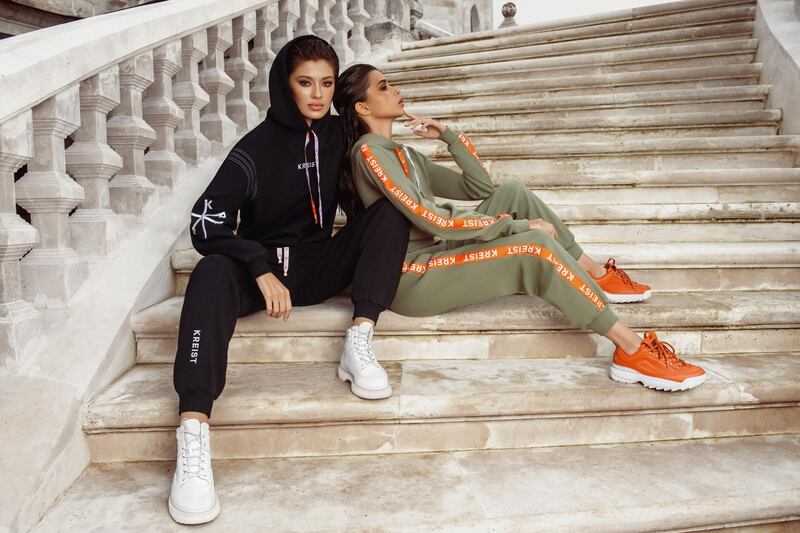"I am really trying not to be my own best customer," Priya Jelly says. The self-confessed fashion addict is only half-joking. Jelly says of her reason for launching an online boutique in an already crowded market: "As an online consumer myself, I couldn't find the brands I wanted on one platform; I had to go to many different websites, which were either luxury or fast fashion.
"Emerging brands might be on a luxury site, but were totally lost amid the 300 other brands; so I decided to have emerging labels all on one site, completely curated with streetwear and eveningwear in one place. New brands stand out on my site because they are the only brands we focus on."
In a market dominated by big-name fashion houses, The Private Label bucks the trend and instead offers luxurious albeit emerging brands. The reasoning is threefold, says Jelly: every big brand was once a new name; in such a competitive market, small brands need support if they are to survive; and, most importantly, no woman wants to "walk into a room and three other women are wearing the same outfit. Every woman wants to dress differently and wants to be elegant, so that is exactly what we are bringing in".

Gifted with an entrepreneurial spirit, Jelly was the brain behind Maison de Fleur. Launched in 2014, she transformed the made-in-Dubai brand to a global luxury florist before selling it four years later. “When I sold, I was like: ‘What’s next?' and so started this company. We have a platform for emerging designers from all over the world, and every single one has been hand-picked. The focus is on good quality, good design and a good price. I have big-name pieces that I have worn once, maybe twice, and they go back into my wardrobe, so I don’t want women to come to my site and break the bank.”
Prior to launch, Jelly spent two years scouring the online fashion industry to gauge what works and what doesn’t. Her research revealed a huge gap in the market in terms of what was being offered to women online, price-wise, too.
“Either sites have super-low-end brands or super-high-end ones. There is nothing that focuses in between, and that’s why it took me two years to come up with all these brands. It would be easy for us to put [popular brands] on the site to get the traffic, but that is not what we are looking for. We want to support new designers.”
Having just launched, The Private Label offers a concise range of names, with plans to expand as the site grows – the next stockist to look forward to is Walk of Shame by Moscow designer Andrey Artyomov. The most expensive outfit on The Private Label is Dh6,000, although one can get a black mini dress from Ukrainian label T-Dress for as less as Dh250 and a gold-plated chain necklace from Swedish jewellery company Liya for Dh450. A wonderfully kitsch pair of dragon earrings by Natia X Laka retails for Dh639, while Selmacilek’s cropped leather trousers sell for Dh1,200.
Another realisation was that other sites are either repetitive (offering the same names) or time-consuming to search (with too many brands). Jelly says that as a busy business women herself, she didn’t have time to flit from site to site looking for what she wanted. The result? A one-stop shop offering everything from streetwear and sport-inspired separates to daywear and dressy evening looks.
The latter includes a crocodile-effect bodysuit (Dh1500) from Italy’s Giuseppe Di Morabito and red-carpet-worthy gowns from Australian label Zhivago, to a little red dress (Dh2,130) from Bologna-based Amen and sparkling wide-leg pants (Dh2,699) from Sicilian designer Daniele Carlotta. Representing regional designers is Egyptian bag brand Sadafa, which creates bespoke clutches using luxe materials such as mother-of-pearl and abalone, and retails for between Dh1,200 and Dh1,450.
As a homegrown brand, Jelly understands both the needs of the customer and the brands she is working with, making her well placed to offer real support to both. Crucially, she knows how vital it is to be able to find things quickly and efficiently, and have them delivered without fuss. “We don’t want customers to waste time on the edit, we just want them to come and shop with an easy payment system, so we worked hard on all the back-end stuff such as payments systems, currency acceptance and delivery. It’s why it took two years to launch,” she explains.
“The consumer we are looking at is any woman who doesn’t have a lot of time, who wants to feel elegant, but also who wants to take risks with fashion. There are all these emerging brands who have amazing styles, and fashion for me is all about exploring one’s individuality.” That individuality can be expressed through brands that may be unfamiliar, but thanks to Jelly’s tight curation and quality control offer a compact “capsule wardrobe” mentality – arguably the future of affordable luxury fashion.






